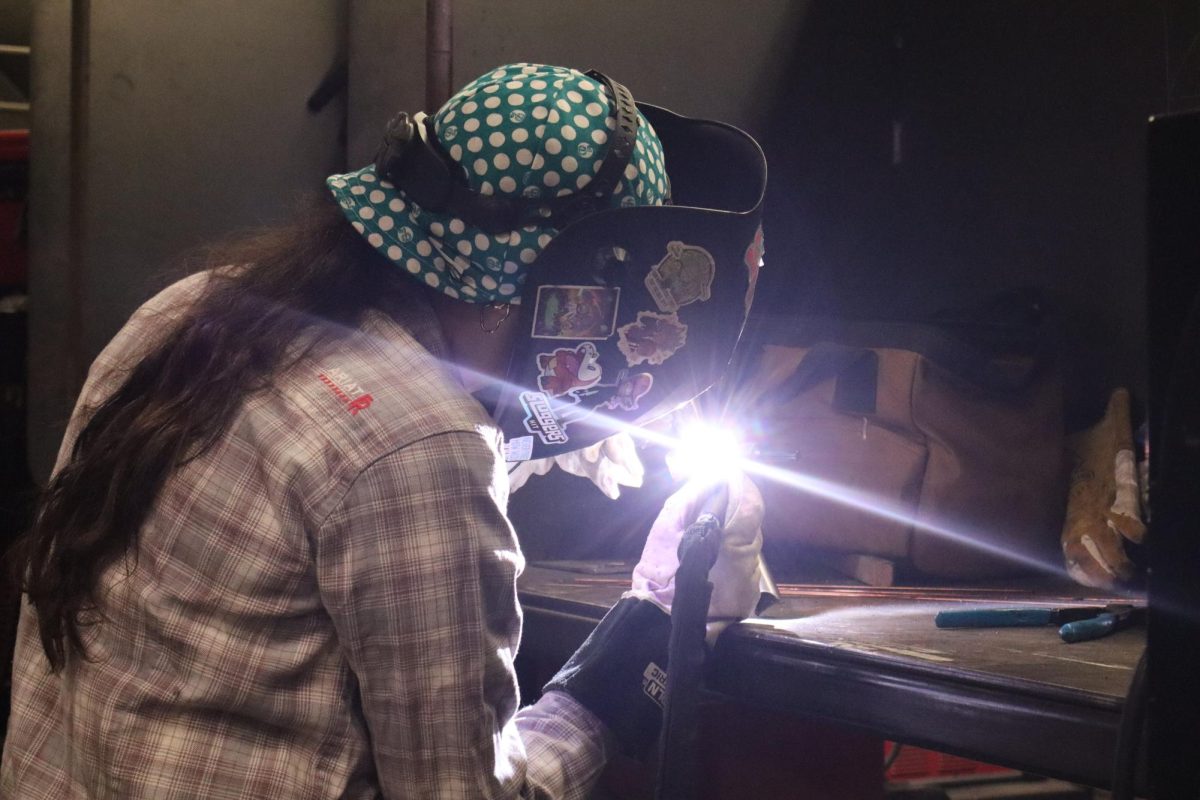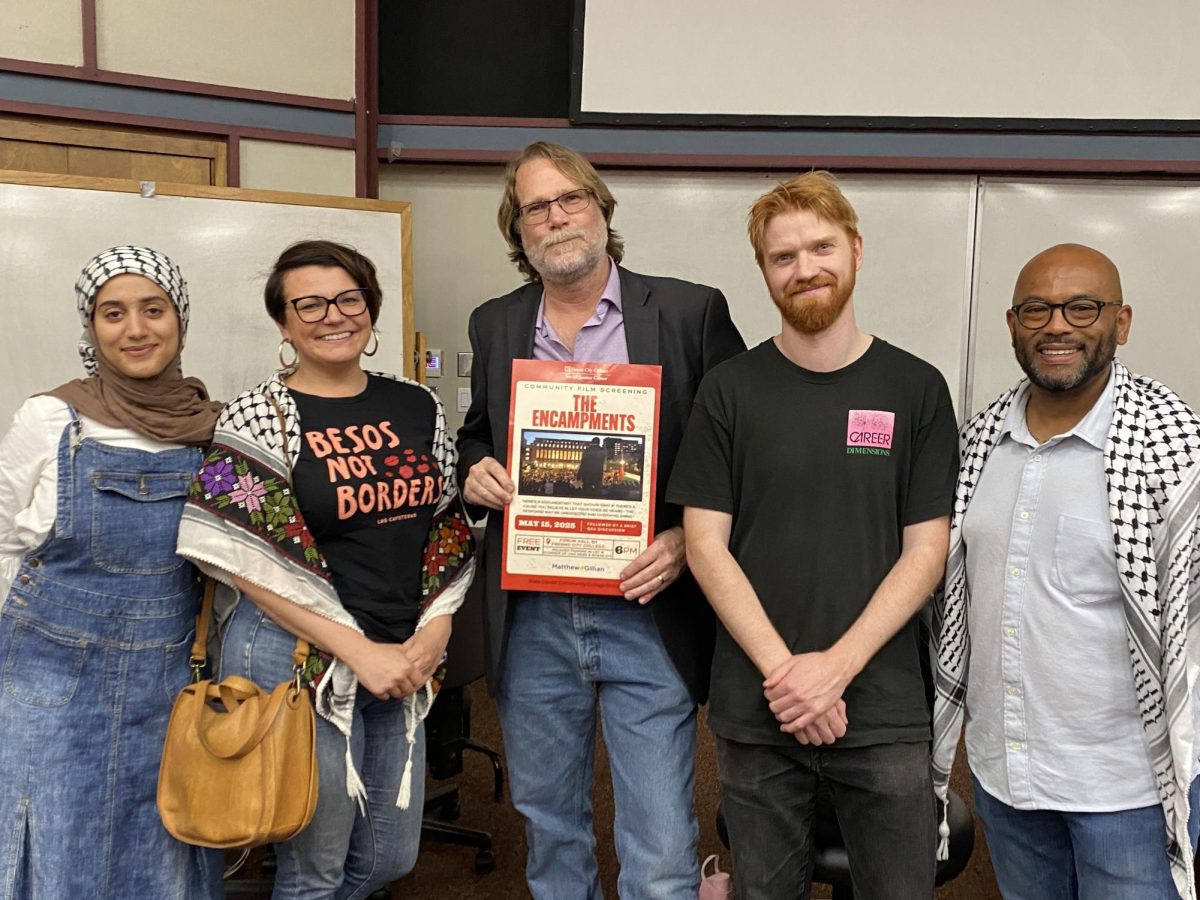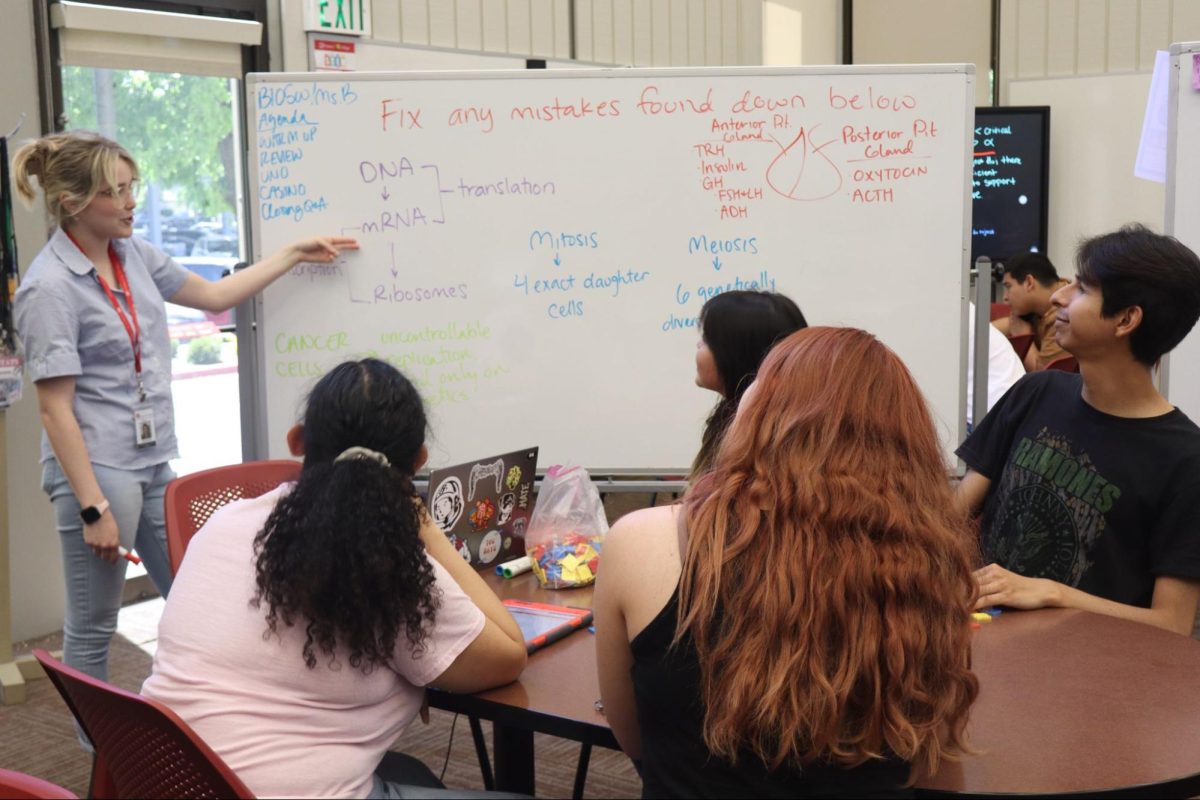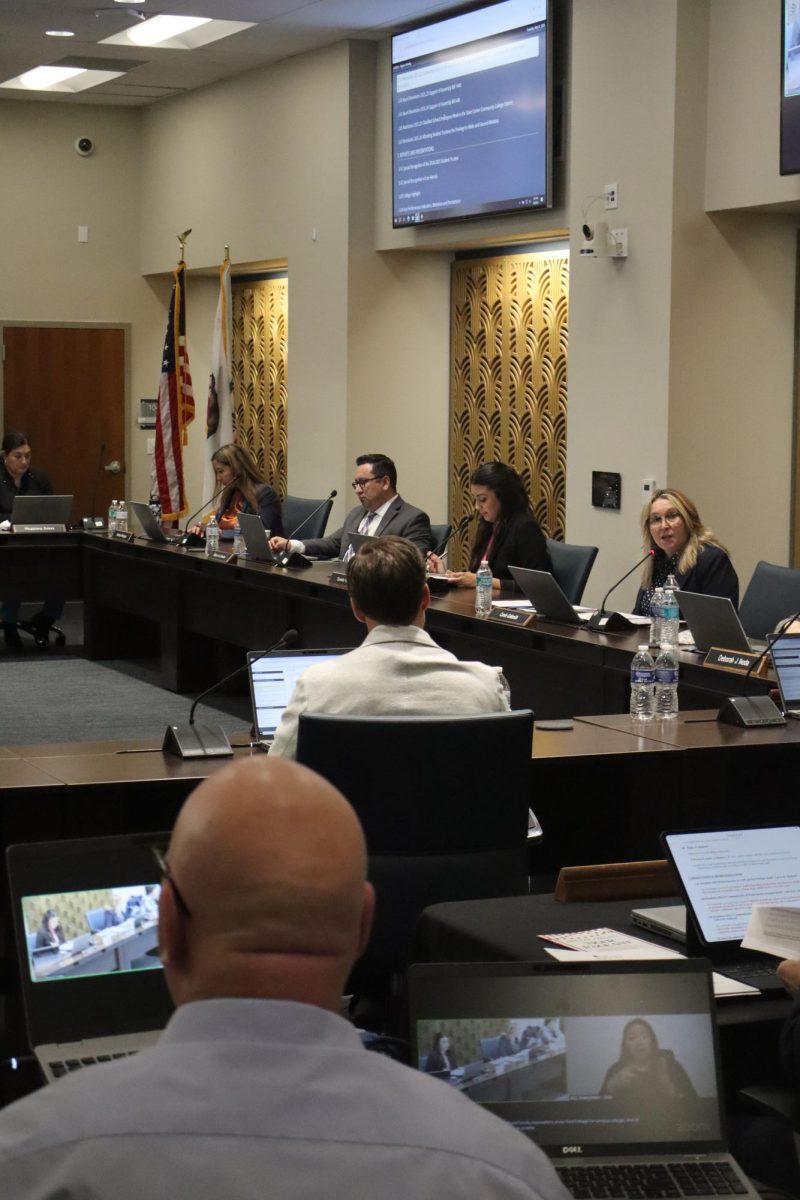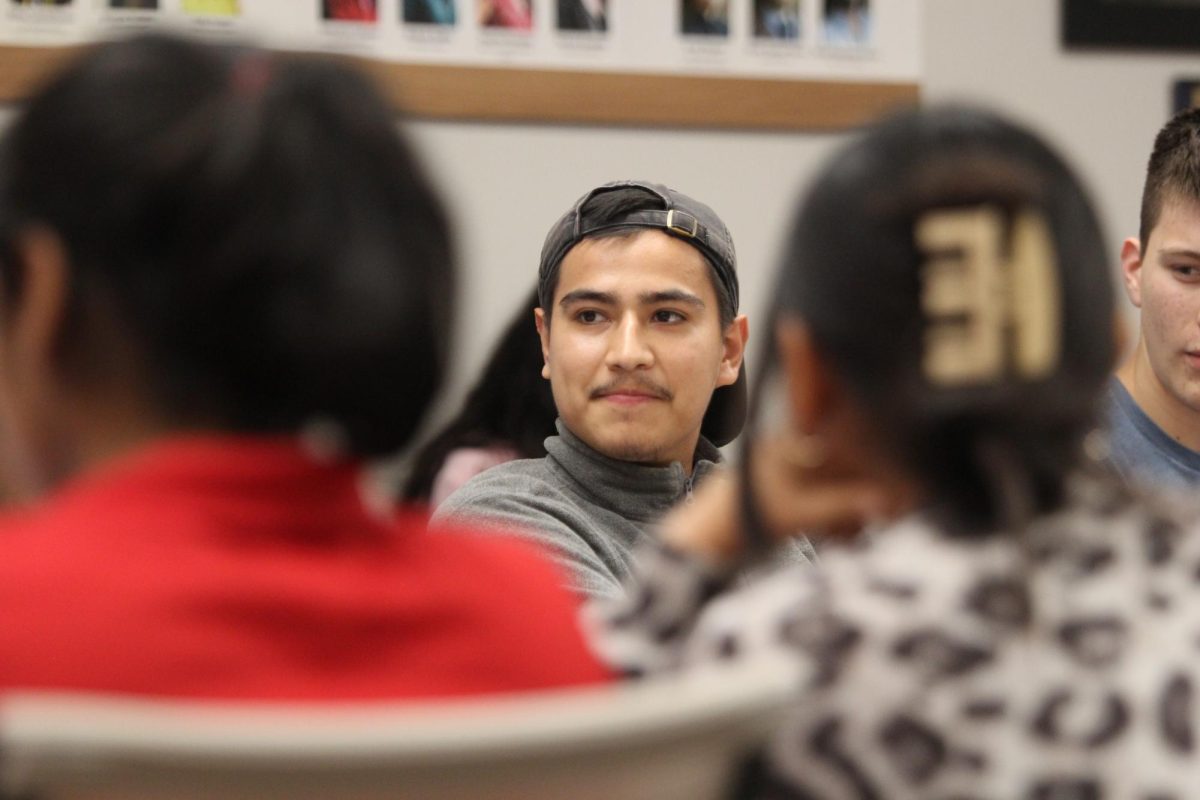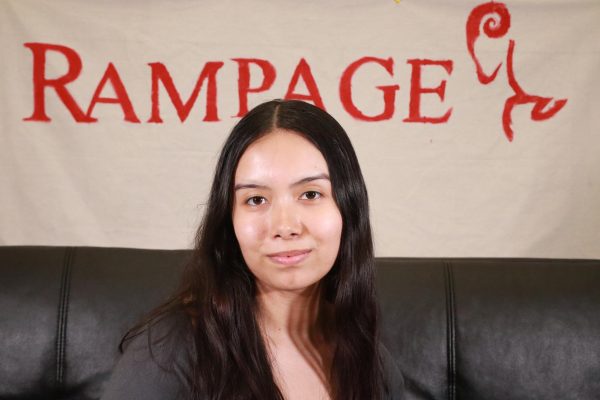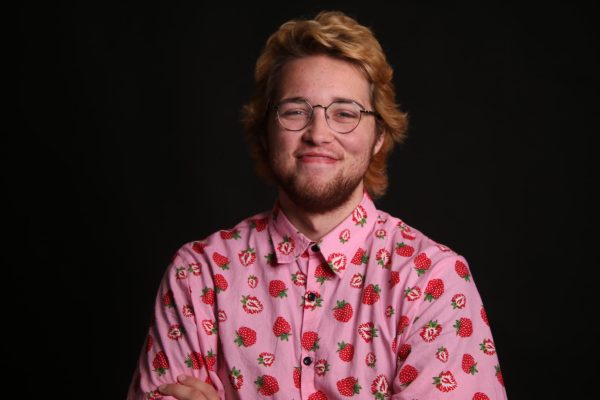Women have been making strides in applied technology, a field that encompasses multiple disciplines that remain invaluable in the workforce.
Aurora Pecarovich, who teaches a precision measurement course here at Fresno City College, has deep roots in the field of applied technology.
She got her start at FCC as an adjunct instructor or part time, teaching computer applications and eventually took over the precision measurements course.
“My family has been in trucking forever, so you know, big rig semis. That got me interested in diesel, and then I joined the Coast Guard and went into the engineering department. I guess that’s been my life, is diesel engines basically,” Percarovich said.
In talking about her own experiences from the 80s and 90s, Percarovich said intimidation and hesitation were setbacks for women.
“I think a lot of times we might suffer from almost an imposter syndrome and maybe wanting to prove yourself, until you reach the age, until you know yourself and you’re confident in your skill level, because it can make you not develop your skills as quickly or as in depth as you maybe would want to or are capable of, because you might feel like intimidated to ask questions.”
It took Pecarovich 30 years to grow confident in finding what she did and didn’t know. Getting older and gaining experience helped her to find that confidence.
“I just think knowing yourself is the number one ticket to success and being comfortable because that allows you to ask the questions you need to ask,” she said.
As is the case in many other industries, applied technology hasn’t seen a large number of women.
In the four semesters that Pecarovich has been teaching precision measurements she says women have been a minority.
Marilyn Munoz, who is learning the welding trade at FCC, said she is one of the few women in her classes.
“It’s really fun, because it surprises a lot of people to see women in welding and in a lot of the classes that I’ve been in, I’m not surrounded by a lot of women. There’s usually just me and one other girl or maybe two. So it’s really fulfilling to surprise people,” Munoz said.
A challenge Munoz has is not being taken seriously because she’s a woman, but it only feels better to prove people wrong with her skills.
“I would say just the stigma of being a woman in a man controlled industry is the biggest challenge that I face, because it does give me some anxiety when I think about when I’m done with the welding industry, and I actually have to go out into the workforce,” Munoz said. She is again reminded that she will likely be surrounded by more men than women.
Munoz’s motivation is her 3-year-old daughter wanting her to have a better lifestyle than she had.
“I also just want to show other women that just because there’s an industry that you know is mostly dominated by men doesn’t mean that women can’t do it too,” she said.
Women of applied technology bring a different perspective with them to the table.
“I don’t want to just know what I’m doing as the first step. I want to know my entire path to completion. And I don’t know if that’s women in general. I do know that it was something I tended to do more than my male counterparts,” Pecarovich said.
Munoz, a former student of Pecarovich, shares a similar sentiment; that women’s attention to detail helps them be better welders. Detailing how she’ll take the time to ensure her measurements are correct before cutting, therefore having to make less adjustments.
“That’s where I think women are gonna start taking over, if enough of us find out that we can do this and find out how fun it is, then I feel like women can take over the welding industry,” she said.
With the growth of applied technology, resources are becoming available to help women in the field. Munoz says that this is only the beginning for women in the welding industry as opportunities are opening.
The Jessi Combs Foundation is one scholarship available to women looking to get into the industry.
Both women have visions of a better future for other women in the industry. Pecarovich said that throughout her time teaching precision measurements she’s been asked why she specifically was picked to instruct the class.
“I would love to see stuff like that not exist,” Pecarovich said.
Munoz wants to shape her future through her education, and hopes to use her degree to teach at a school like FCC when she’s no longer able to do the physical work. The support she received from her instructors fueled this motivation.
“But for me, specifically, I want to be able to motivate young women and I know it’s probably personal to me because I have a daughter, so I want her to know that she can do anything, and any other woman or girl can do anything too,” Munoz said.

